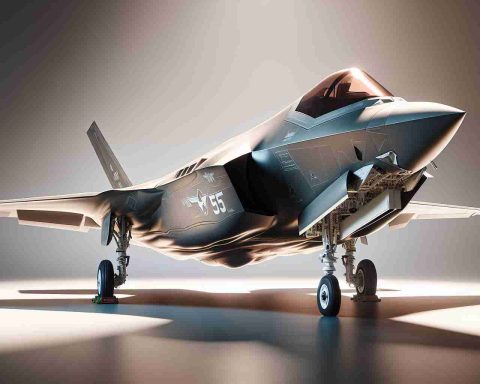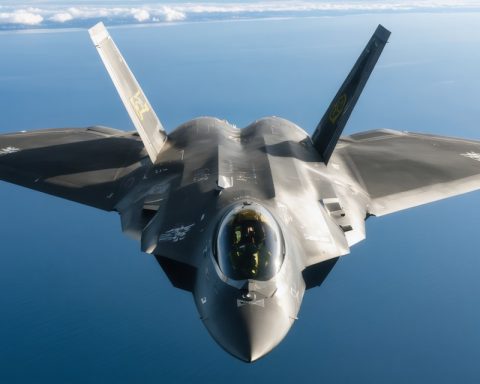As Donald Trump prepares to take office again, uncertainty hangs over Ukraine’s situation amid the ongoing conflict with Russia. With his return to the White House, European allies find themselves in a precarious position, eager for a clear strategy from the United States regarding the war.
Attention now focuses on whether Trump will adopt a tough stance against Russia or choose a more isolationist approach, potentially leaving Ukraine vulnerable. European leaders are keenly aware that they cannot simply wait for the U.S. to formulate its policy before taking action. The urgency of the situation in Ukraine demands decisive responses, and its allies are contemplating various diplomatic and military strategies to support the embattled nation.
The stakes are incredibly high as the conflict remains unresolved, and the repercussions of the U.S. political landscape shift could significantly influence the dynamics on the battlefield. It is essential for European countries to collaborate closely, ensuring that their approach aligns with their own security interests while keeping a wary eye on American political developments.
In these critical days leading up to the inauguration, the future of Ukraine hangs in the balance. European nations are preparing for a range of scenarios, hoping for the best while bracing for the potential fallout from U.S. foreign policy under the new administration.
The Strategic Crossroads: Europe and the Future of Global Stability
As Donald Trump’s administration looms on the horizon, the implications for global stability, particularly in Europe, are profound. The struggle in Ukraine is not merely a regional conflict; it has escalated into a pivotal moment for European security and geopolitical strategy. The evolving conflict poses risks not only to the immediate region but also raises enduring questions about the reliability of U.S. alliances. The uncertainty surrounding U.S. foreign policy under Trump could reshape diplomatic ties, necessitating a recalibration of existing security arrangements.
Economically, the consequences of this political shift could reverberate globally. A weakened or absence of solid U.S. support for Ukraine might embolden adversaries, undermining international markets and destabilizing the region. Moreover, countries heavily reliant on energy imports from Europe could face significant challenges, particularly with the ongoing repercussions of sanctions against Russia affecting oil and gas availability.
On an environmental front, the conflict has intensified discussions around military logistics that often entail high carbon footprints. Europe’s increased military readiness may lead to heightened environmental degradation, calling for a balance between security needs and ecological stewardship.
In light of these concerns, European nations must cultivate a cohesive strategy that emphasizes both defense and sustainable progress. The outcomes of this geopolitical maneuvering will ultimately define relationships well into the future, illustrating the interconnected nature of security, economy, and environmental stewardship on a global scale.
What Trump’s Return to Office Means for Ukraine: Unpacking the Implications and Strategies
Introduction
As Donald Trump prepares for his potential return to the White House, the situation in Ukraine remains precarious amidst ongoing conflict with Russia. This moment raises a profound set of questions about U.S. foreign policy and its repercussions for Ukrainian sovereignty and European security.
The Stakes for Ukraine
The stakes are extraordinarily high for Ukraine as it faces continued aggression from Russia. The unresolved conflict has put immense pressure on Ukrainian forces and highlighted the reliance of Ukraine on international support, particularly from its Western allies. With Trump’s presidency, the dynamics of such support may shift dramatically.
Points of Concern for European Allies
1. Uncertain U.S. Stance: European allies are anxious about whether Trump will take a tough stance against Russia or return to a more isolationist policy approach. This uncertainty complicates their defense strategies and response measures toward supporting Ukraine.
2. Need for Decisive Action: European leaders understand they cannot solely depend on the U.S. to outline a strategy. The urgency of the situation necessitates quick, cohesive responses, and they are actively contemplating various options—both diplomatic and military—to support Ukraine.
Potential Strategies
European nations could employ a combination of diplomatic and military strategies, including:
– Increased Military Aid: Providing advanced weaponry and training to bolster Ukraine’s defense capabilities.
– Economic Sanctions: Coordinating sanctions against Russia to weaken its economic base and limit its military funding.
– Diplomatic Engagement: Engaging in proactive diplomacy to foster a coalition of support for Ukraine among global partners.
Pros and Cons of Different Approaches
– Tough Stance Against Russia
– Pros: Sends a strong message to Moscow; may deter further aggression.
– Cons: Could escalate tensions, risking broader conflict.
– Isolationist Approach
– Pros: Reduces military entanglements; focuses on domestic issues.
– Cons: May leave Ukraine vulnerable; diminishes U.S. influence in the region.
Key Insights Moving Forward
1. Collaborative Approaches: European countries are advised to enhance their collaboration; aligning their national interests while preparing for various outcomes post-Trump’s inauguration is crucial.
2. Monitoring American Policy: Keeping a vigilant watch on the evolving U.S. political landscape is paramount. European allies need to be prepared to adapt swiftly if U.S. policy shifts unexpectedly.
3. Supporting Ukraine’s Resilience: Investing in Ukraine’s resilience, through humanitarian aid and grassroots support, will be critical to maintaining morale and stability within the country.
Predictions for the Future
As the situation evolves, it’s pivotal to expect the unexpected. Analysts predict that if Trump assumes the presidency again, the approach towards Russia will potentially oscillate based on political pressures and strategic necessities, complicating the situation for Ukraine.
Conclusion
The future of Ukraine is finely balanced, dependent on both its own resilience and the unpredictability of U.S. foreign policy under a renewed Trump administration. As the world watches closely, the choices made by European leaders in response to this shifting landscape will significantly shape the next chapter in the ongoing conflict.
For further insights and updates on international relations, visit U.S. Department of State.











